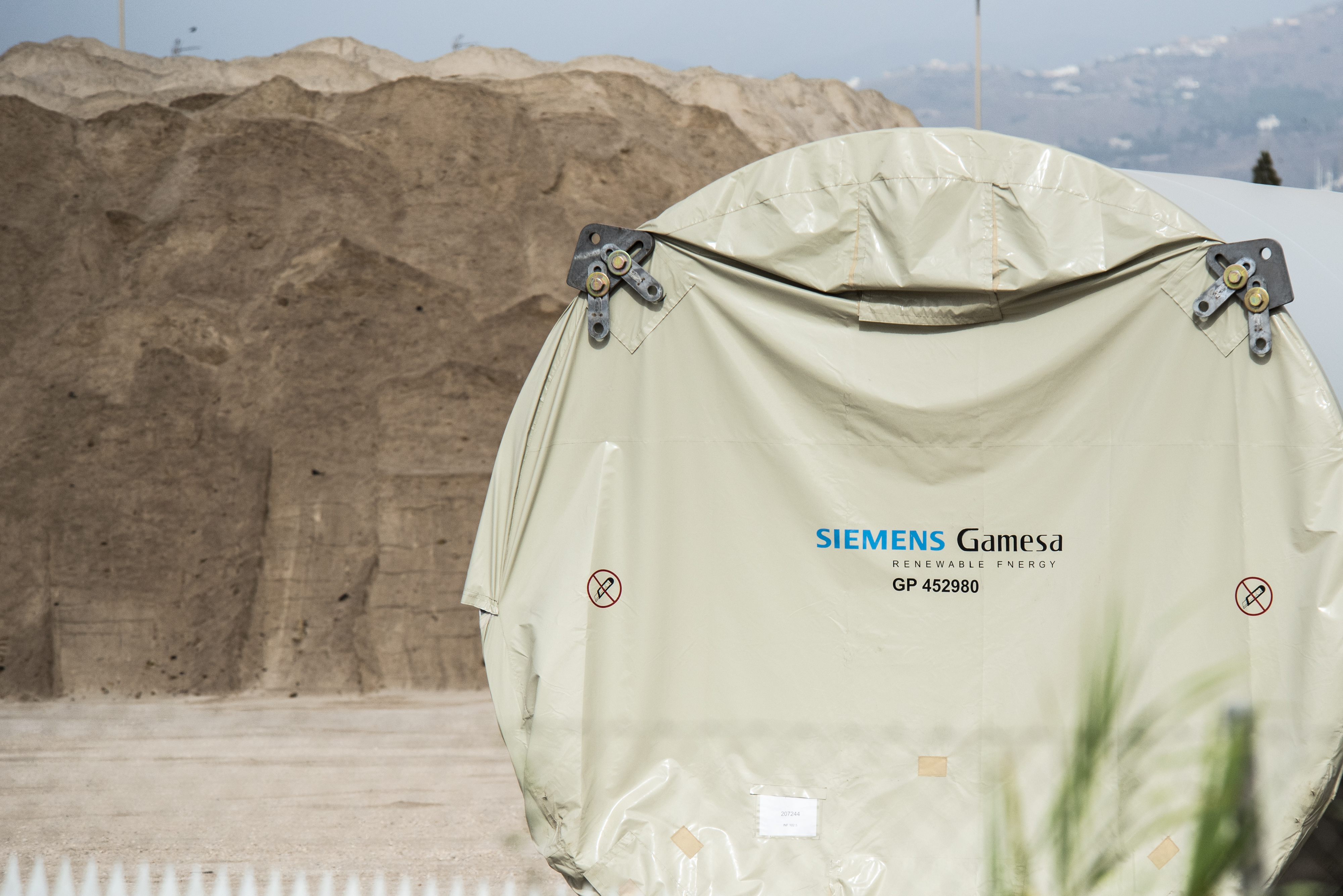Le géant français de l'huile de poisson reconnaît sa présence dans le territoire occupé.
L'entreprise annonce qu'elle apportera ses services à un projet qui suscite de vives inquiétudes quant au respect du droit international et des droits humains.
Pour la douzième année consécutive, WSRW publie un aperçu annuel détaillé des entreprises impliquées dans l'achat de phosphates du Sahara Occidental occupé.
WSRW a retracé les importations de minerai de phosphate jusqu'à un quai adjacent à une filiale de la société japonaise Taiheiyo Cement Corporation.
Près d’un million de tonnes de sable ont été exportées du Sahara Occidental occupé vers les Canaries au cours des cinq dernières années, révèle un nouveau rapport de WSRW.
Des composants d'éoliennes pour un nouveau parc éolien controversé arrivent actuellement dans le territoire occupé.
Huit rapporteurs spéciaux de l'ONU appellent le Maroc à cesser de démolir les propriétés sahraouies, alors que le Royaume développe des projets de production d'énergie dite verte au Sahara Occidental occupé.
Les immenses ports construits par le Maroc au Sahara Occidental occupé sont fabriqués avec du ciment de la multinationale allemande.
Allianz a félicité le peuple marocain pour ce qui constitue l'une des violations les plus graves du droit international depuis la Seconde Guerre mondiale.
Les entreprises vont construire un parc éolien d'une capacité de production de 1 200 MW au Sahara Occidental occupé, ainsi qu’une ligne de transport d’électricité de 1 400 km jusqu’au Maroc, en violation flagrante du droit international et des droits des Sahraouis.
L'entreprise française, qui prétend exceller dans la compréhension des réglementations, semble ignorer dans quel pays elle accompagne les entreprises.
L'entreprise finlandaise Wärtsilä qualifie le Sahara Occidental de partie du Maroc et cite les positions de « certains pays » pour justifier ses opérations dans le territoire occupé.
La multinationale allemande, qui approvisionne les projets marocains de production d'énergie dans le territoire occupé, ne comprend pas les décisions de la Cour de justice de l'UE.
WSRW était présent la semaine dernière lorsque l'entreprise brésilienne Votorantim a reçu, à Tenerife en Espagne, une cargaison de sable en provenance du Sahara Occidental occupé.
WSRW condamne fermement le mépris flagrant d'Engie pour le droit international au Sahara Occidental occupé.
La multinationale française refuse de clarifier le lien entre son accord monstre avec la compagnie nationale marocaine de phosphates et le Sahara Occidental occupé.
Kosmos Energy a finalement supprimé un site Internet créé pour vanter ses activités d'exploration pétrolière et gazière au large du Sahara Occidental.
La multinationale française ne répondra pas aux questions sur sa participation potentielle dans un projet d'énergie éolienne au Sahara Occidental occupé en partenariat avec le Premier ministre marocain.
L'entreprise émirienne Dahamco, liée à la Belgique, va investir plusieurs milliards de dollars dans un projet de production d'énergie très problématique sur un territoire occupé.
C'est aujourd'hui le 20e anniversaire de Western Sahara Resource Watch.



















